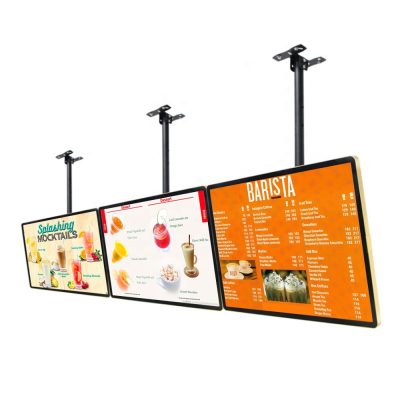The future of touch screen interfaces is expected to be marked by continued innovation and the integration of touch technology into a wide range of devices and applications. Here are some trends and developments that may shape the future of touch screen interfaces:
- Flexible and Foldable Displays: The development of flexible and foldable touch screens will open up new possibilities for device form factors. Devices that can be bent, folded, or rolled may lead to innovative designs for smartphones, tablets, and wearable technology.
- Haptic Feedback: Advanced haptic feedback technology will enhance touch screen interfaces by providing tactile sensations that simulate the feel of physical buttons or textures. This can greatly improve user immersion and interaction.
- Gesture Recognition: Touch screens will increasingly incorporate gesture recognition technology, allowing users to control devices and applications with hand and body gestures. This could be particularly useful in automotive interfaces, gaming, and augmented reality (AR) applications.
- Integration with Other Technologies: Touch screens will be integrated with other technologies such as augmented reality (AR) and virtual reality (VR) to create immersive experiences. This could impact industries like gaming, education, and healthcare.
- AI and Voice Integration: Touch screen interfaces will become smarter with the integration of artificial intelligence (AI) and voice assistants. Users will be able to interact with devices through touch, voice commands, and natural language processing.
- Biometric Authentication: Touch screens will continue to incorporate biometric authentication methods such as fingerprint recognition, facial recognition, and even palm vein scanning for enhanced security and user convenience.
- Healthcare and Medical Applications: Touch screen interfaces will play a growing role in healthcare and medical applications, including telemedicine, remote monitoring, and surgical instruments with touch-enabled controls.
- Automotive Interfaces: Touch screens in cars will become more advanced, with larger displays, intuitive gesture controls, and integration with autonomous driving technologies.
- Accessibility: Touch screen interfaces will evolve to be more inclusive and accessible, with features like adaptive touch sensitivity, voice-guided navigation, and improved tactile feedback for users with disabilities.
- Environmental Considerations: The development of touch screen technologies with reduced power consumption and environmental impact will be a focus. This includes more energy-efficient displays and materials with lower ecological footprints.
- Privacy and Security: Touch screen interfaces will need to address privacy and security concerns, especially as biometric data becomes more integrated into touch-based authentication methods.
- Education and Training: Touch screens will play a significant role in education and training, with interactive digital textbooks, virtual laboratories, and immersive learning experiences.
- Wearable Technology: The integration of touch screens into wearable devices like smartwatches, smart glasses, and AR headsets will continue to expand, enabling new ways of interacting with information and the environment.
The future of touch screen interfaces is likely to be characterized by greater interactivity, improved user experiences, and a wide range of applications across various industries. As technology continues to advance, touch screens will remain a key interface for connecting humans with digital devices and environments.















